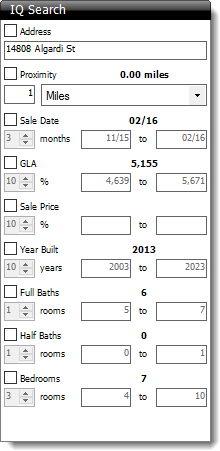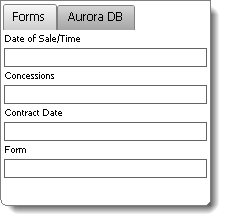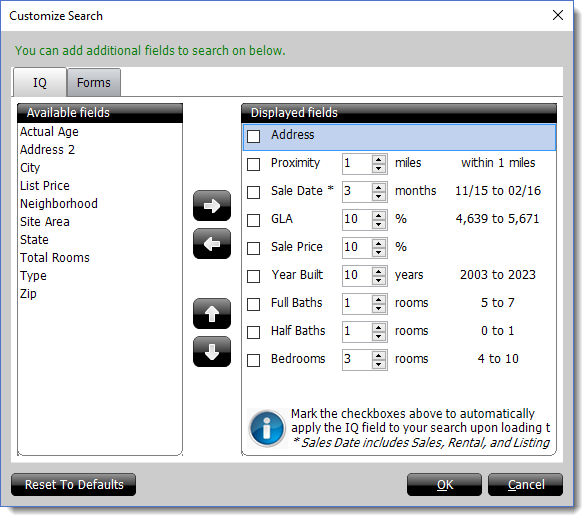
The power behind a comparables database is the ability to quickly and easily locate potential comparables that can be used in your report. TOTAL's IQ Search builds upon the search mechanics you're familiar with in other comparables databases by applying predefined search criteria across all of the properties in your database, and across all data sources for each comp. You can also customize the list of search criteria applied to your properties by default, then refine the default search criteria to adjust for the specific report you're working on. Then, narrow your results even further by entering criteria in the Filter tabs and drawing market areas so that you're not just finding comps, you're finding the best comparables for this appraisal.

IQ Search lets you specify reusable ranges relative to the subject (within 90 days, +/- 10% GLA, etc.) and it applies them automatically. Tweak the IQ items all you want and add an unlimited number of database‑specific custom queries on top of them too. If it exists, you’ll find it.
IQ Search applies a predefined list of search criteria across all properties and all sources in your database. The available search criteria is based on the 20 most commonly used fields such as Sale Date, GLA, and the Sale Price. The top 6 of these are enabled by default, but they can be customized to suit your searching preferences. When you open the Comps Database, the default IQ search settings are applied immediately and properties that do not meet your predefined criteria are eliminated from the list of results. The ranges for the values of each item in IQ search are based on the report you currently have open. Adjust the search criteria being applied to your properties by checking and unchecking the items from the IQ Search pane, or adjust the value ranges for each item to expand or narrow your search results.
Adjusting the search criteria to be used, or changing the range of values only affects the current session. Closing the Comps database and reopening reverts to the default settings for IQ search. If you want the changes to be permanent, you must make the changes from the customize search window.
Search Filters allow you to narrow your search results even further. Think of it like an "advanced" search function. The tabs displayed in the search Filters section vary depending on the source or sources of the properties in your Comps Database. Currently, there are 2 potential Filter tabs that are displayed:

As we release updates to the Comps Database and expand our list of integrated partners with the TOTAL store, additional import sources will be made available, and therefore additional Filter tabs will also be made available. Stay tuned for more information.
Customize search is where you change the default IQ Search criteria that is applied to your properties when you open the Comps Database, as well as the available fields that appear for your search Filters. Follow the instructions below to customize your IQ Search and Filters:


Example: |
|
Let's say you want IQ Search to limit your search results so that only properties with a sale date within 6 Months of the subject are displayed:
|
That's it! From here, add and remove fields as necessary, adjust their values, and when finished click OK. The new values are applied to the IQ search and Filters where applicable, and are applied each time you open the Comps Database in subsequent reports.